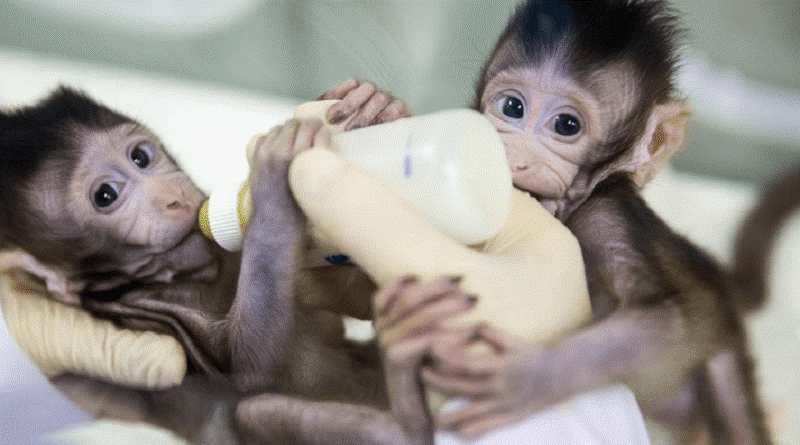In a groundbreaking feat of scientific achievement, Chinese researchers have recently accomplished the cloning of the first rhesus monkey, affectionately named “ReTro.” This remarkable milestone not only marks a significant leap forward in medical research but also holds the promise of transforming drug testing and biomedical studies. By providing genetically identical subjects, this breakthrough offers unparalleled precision in experimentation. However, amidst the excitement, ethical concerns loom large, sparking debates regarding animal welfare and the intricate complexities of cloning technology.
In a significant step forward for cloning technology, Chinese scientists have achieved the cloning of Retro, the first rhesus monkey, utilizing a modified version of somatic cell nuclear transfer (SCNT). This accomplishment, detailed in a study published in Nature Communications, highlights the potential for cloning in primate species.
Falong Lu, an investigator at the Chinese Academy of Sciences, acknowledges the challenges encountered during the process, emphasizing the groundbreaking nature of Retro’s successful cloning despite the low efficiency compared to natural fertilization.
However, ethical concerns surrounding cloning persist despite the scientific achievement. The UK’s Royal Society for Prevention of Cruelty to Animals (RSPCA) has voiced reservations regarding the ethical implications, citing potential pain and distress inflicted upon animals during the cloning process. Miguel Esteban from the Guangzhou Institute of Biomedicine and Health also underscores the ongoing ethical dilemmas associated with cloning, advocating for caution and ethical considerations in scientific endeavors. As discussions continue, Retro’s cloning represents a significant milestone in biotechnology while prompting critical reflections on the ethical responsibilities inherent in scientific progress.

In summary, ethical concerns surrounding the cloning of Retro, the first rhesus monkey, highlight the need for careful consideration of animal welfare and the potential ethical implications of scientific experimentation. Organizations such as the UK’s Royal Society for Prevention of Cruelty to Animals (RSPCA) express reservations about the pain and distress inflicted upon animals during the cloning process. Scientists and ethicists alike stress the importance of addressing these concerns and maintaining ethical standards in scientific research to ensure the responsible advancement of cloning technology.

